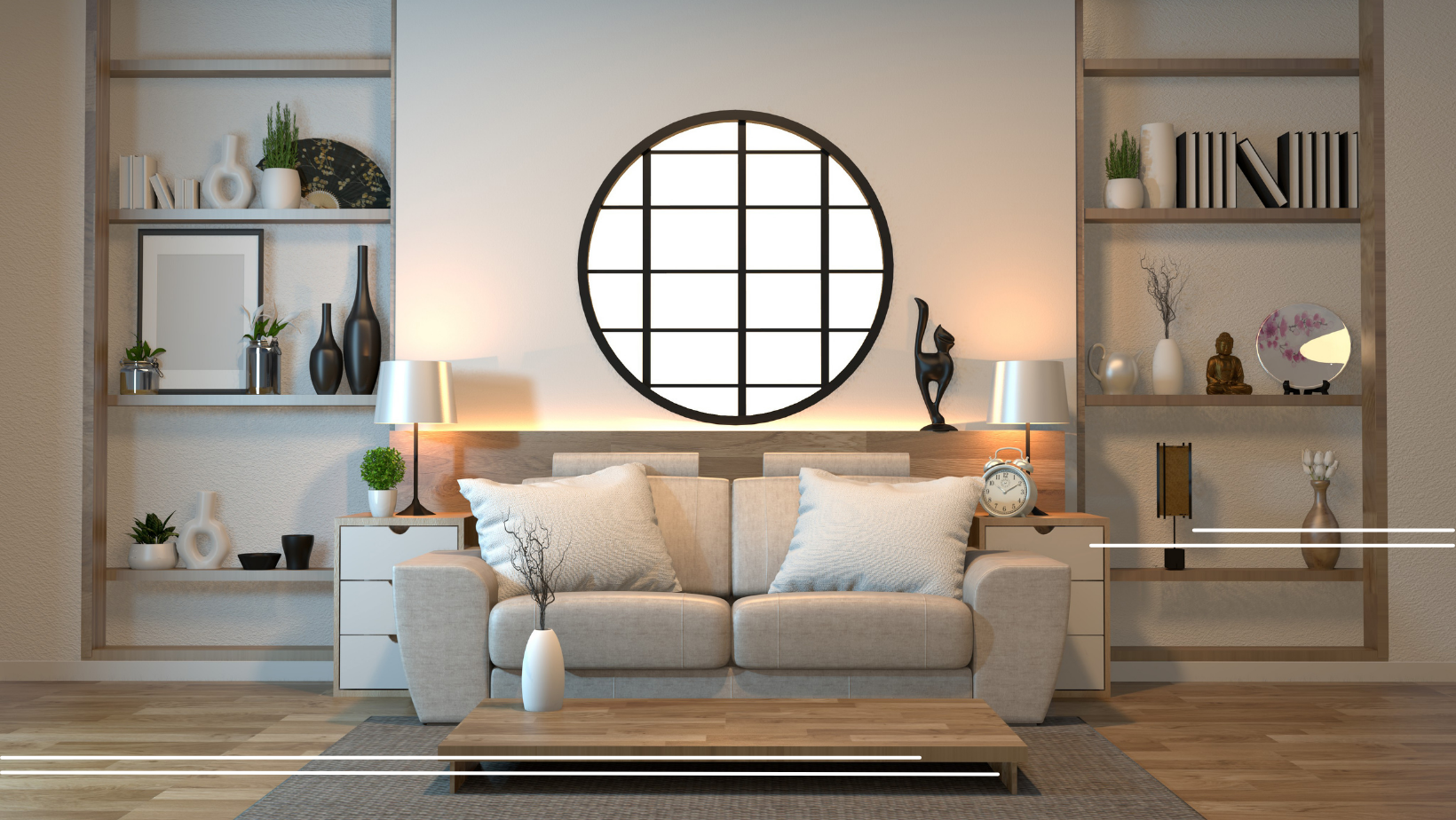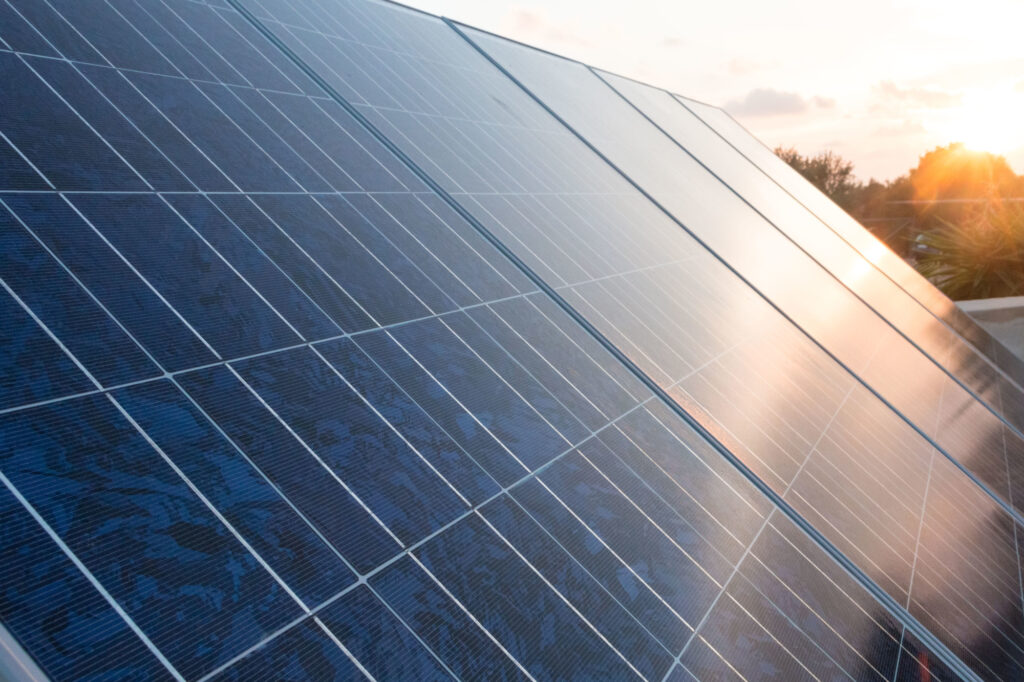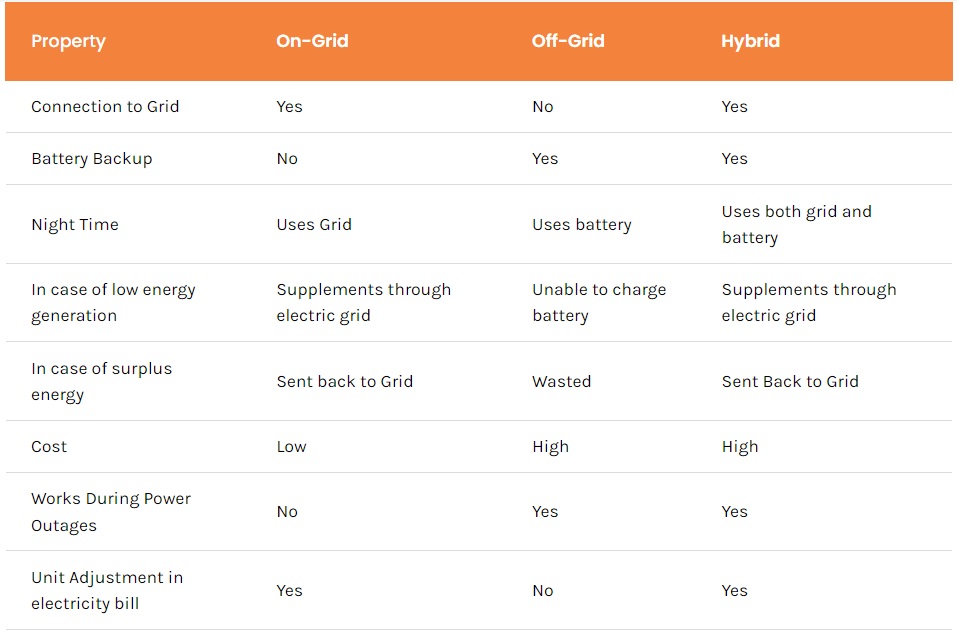
In this unpredictable terrain of our world, switching to solar has almost become a necessity. But, while the decision to install solar panels may be easy, the process of choosing the right type of solar system for your needs can be a daunting task.
As an investor, you have to look at certain factors such as location, electricity cost, and frequency of power outages before making an informed decision about the solar system that is not only right for you but also lasts longer.
This guide will simplify the process by explaining the three types of solar systems, their pros and cons and the difference between them.

There are three ways your solar systems can work- by being connected to the grid, by being independent of the grid, or through a combination of both. Thus, there are three types of systems:

Before deciding on the type of solar system to go for, you must ask yourself the following questions.
If electricity is readily available and blackouts in your area are rare, an on-grid system would provide an economical solution for your energy needs. If power outages are common, go for an off-grid system that can store excess energy for later usage.
If the cost of electricity is high, a grid-tied system allows you to lower your electricity bills by selling the surplus power back into the grid.
Additionally, if your solar budget is substantial, go for hybrid solar systems that integrate the features of both, the on-grid and off-grid systems.
Contact Philippine Team
solarph@citycrewservices.com
+63 985 846 0028
Or you may contact directly to our Technical Planner at:
Jake@citycrewservices.com
info@citycrewservices.com
Al Rasis Bus. Cntr, Office 38, Dubai
info@citycrewservices.com
+971 54 279 4579